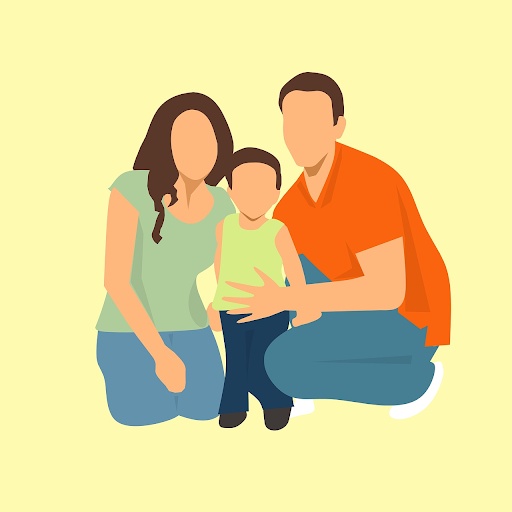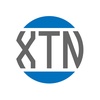In today's dynamic world, where digital transformation is reshaping countless aspects of our daily lives, healthcare stands as one of the most profoundly impacted sectors. The emergence of innovative technologies and methodologies is not only revolutionizing treatment modalities but also redefining how patients engage with their health management processes. One such innovative approach breaking the traditional barriers is gamification, an intriguing concept that applies game design elements in non-gaming contexts, particularly in patient education and engagement.
In the intricate landscape of healthcare, patient understanding and involvement in the treatment process play crucial roles in determining outcomes. However, these aspects have often been challenging due to the inherently complex and sometimes daunting nature of medical protocols and health information. Herein lies the potential of gamification, turning the tedious task of learning about health into an interactive, compelling experience. By incorporating elements like points, badges, challenges, and leaderboards, gamification transforms routine or mundane tasks into stimulating experiences, encouraging patients to be more engaged and proactive with their health.
But the influence of gamification extends beyond just making healthcare more interesting. It taps into deeper psychological factors that motivate behavior, such as the satisfaction that comes from achievement, the human tendency for competition, and the joy of social collaboration. These factors are particularly significant when considering long-term patient engagement, often necessary for chronic conditions and general health and wellness. By creating an environment where staying informed and adhering to medical advice feels rewarding, gamification is setting the stage for a new era in healthcare.
This blog delves deep into the mechanics of how gamification is making waves in healthcare, enhancing patient education, and ensuring sustained engagement. It will explore the multifaceted benefits of this innovative approach, from making information retention more effective to fostering a supportive community for patients, ultimately leading to improved health outcomes. Whether you are a healthcare professional seeking fresh patient engagement strategies or simply a health enthusiast curious about the evolving landscape, the insights below reveal how the gamification of healthcare is a game-changer in true essence.
Understanding Gamification in Healthcare
Gamification in healthcare involves integrating game mechanics into health programs to motivate participation, engagement, and loyalty. This approach uses elements like points, badges, leaderboards, and challenges, making health education and adherence to treatment more interactive and enjoyable. By tapping into the user's psychological triggers for competition, achievement, and collaboration, gamification can transform mundane tasks into exciting and rewarding experiences.
Empowering Through Education
When it comes to healthcare, knowledge is as significant as the treatments themselves. Educated patients are equipped to make informed decisions, yet traditional educational materials (pamphlets, lectures) lack engagement. Gamification, however, can make learning interactive and compelling.
Interactive Learning: Through storytelling and scenario-based games, patients can learn about their health conditions and treatment plans in an immersive environment. These interactive experiences are more engaging and can be more effective than reading a brochure.
Retention: Games that involve memory or recall-based activities help patients retain critical information about their conditions or medication regimen, improving their overall care management.
Enhancing Patient Engagement
Patient engagement is crucial for effective healthcare outcomes. However, maintaining this can be challenging due to factors like fear, confusion, and the complexity of healthcare information. Gamification strategies offer solutions:
Habit Formation: Gamified applications can promote healthy behaviors. For example, a mobile game that rewards users for logging their meals may encourage consistent healthy eating habits.
Community and Support: Multiplayer functionalities or social media integrations allow patients to interact and find support among peers, fostering a sense of community.
Feedback and Progress Tracking: Immediate feedback through points or progress bars can give patients a clear understanding of their health journey, providing both motivation and satisfaction.
Real-World Applications of Gamification in Healthcare
Gamification is not just theory; its practical implementation has had tangible impacts. Various healthcare sectors are developing gamified applications aimed at different aspects of health management.
Physical Therapy: Apps with game elements guide patients through exercises and reward consistent practice, making the rehabilitation process engaging and enjoyable.
Chronic Conditions: For conditions requiring long-term management, such as diabetes, gamified apps help patients track their blood sugar levels, diet, and exercise, often with reward systems that encourage consistent self-care.
Mental Health: Gamification can also support mental health, with apps using therapeutic techniques within gameplay to teach stress management or coping mechanisms.
The Road Ahead – Challenges and Potential
Despite its promise, gamification in healthcare does face challenges. These include ensuring privacy and security of patient data, avoiding over-reliance on competitive elements that may demotivate some individuals, and maintaining a balance so that the gamified elements do not overshadow critical healthcare information.
However, the potential is vast. Future trends may include virtual reality for immersive therapy experiences, artificial intelligence to personalize patient engagement strategies, and further integration with wearable tech for real-time health tracking and feedback.
Conclusion
In the sphere of healthcare, where patient education and engagement are increasingly pivotal, companies like Holon Solutions are stepping into the limelight. As discussed in the insightful exploration above regarding gamification's role in patient interaction, it's evident that technology holds a transformative power in revolutionizing healthcare. Similarly, Holon Solutions is at the forefront of redefining patient and healthcare professional's experiences, resonating with the very essence of bringing back the human touch in such critical services.
Embodying the philosophy of a "holon," the company stands as a testament to unity and interconnectedness in the healthcare ecosystem. Holon Solutions recognizes that while they are an independent entity, they are also a part of a larger system, reflecting the intricate human body where each part, no matter how small, is integral to the whole's health and functionality.
Their cutting-edge platform breaks the mold of traditional healthcare technology. By deploying proprietary sensor technology, Holon goes beyond mere data collection, offering a seamless fusion of information directly into clinical workflows. This nuanced approach not only saves precious time but also addresses the prevalent issue of professional burnout. By alleviating these administrative burdens, healthcare practitioners can re-center their attention where it is most needed: the patient.
Holon's distinction in the healthcare technology field is not just about sophistication; it's about compassion and understanding the human elements at play. Amidst a competitive landscape, their efforts shine brightly, offering tools that eliminate unnecessary complexity and facilitate more human-centric care. This dual focus ensures an equilibrium between achieving solid business returns and enhancing interpersonal connections and healthcare outcomes.
Further epitomizing innovation, the Holon Community stands as a beacon in optimized healthcare processes. It acknowledges that information, much like the facets of our health, is interconnected. The community-oriented platform streamlines comprehensive data delivery, ensuring an effortless blend with existing healthcare mechanisms. Such ingenuity underscores professional fulfillment, indirectly improving patient care by allowing more focused, uninterrupted human interaction.
Holon's Innovation Lab is the nucleus of this forward-thinking approach. Within its space, creativity knows no bounds, as teams are encouraged to push technological and intuitive design to new heights, always with a keen emphasis on empathizing with the user. It is this very emphasis on boldness, simplicity, and humanization that fast-tracks groundbreaking solutions, aligning perfectly with Holon's dedication to substantial, meaningful change.
In conclusion, Holon Solutions, with its unwavering commitment to humanizing healthcare through advanced technology, stands as a parallel to the game-changing potential of gamification in patient education and engagement. Both domains, though different in methodology, echo the same truth: healthcare's future relies on innovative approaches that prioritize human connection and understanding above all else. In this relentless pursuit, companies like Holon are not just innovating; they are redefining the very experience of healthcare itself.


No comments yet